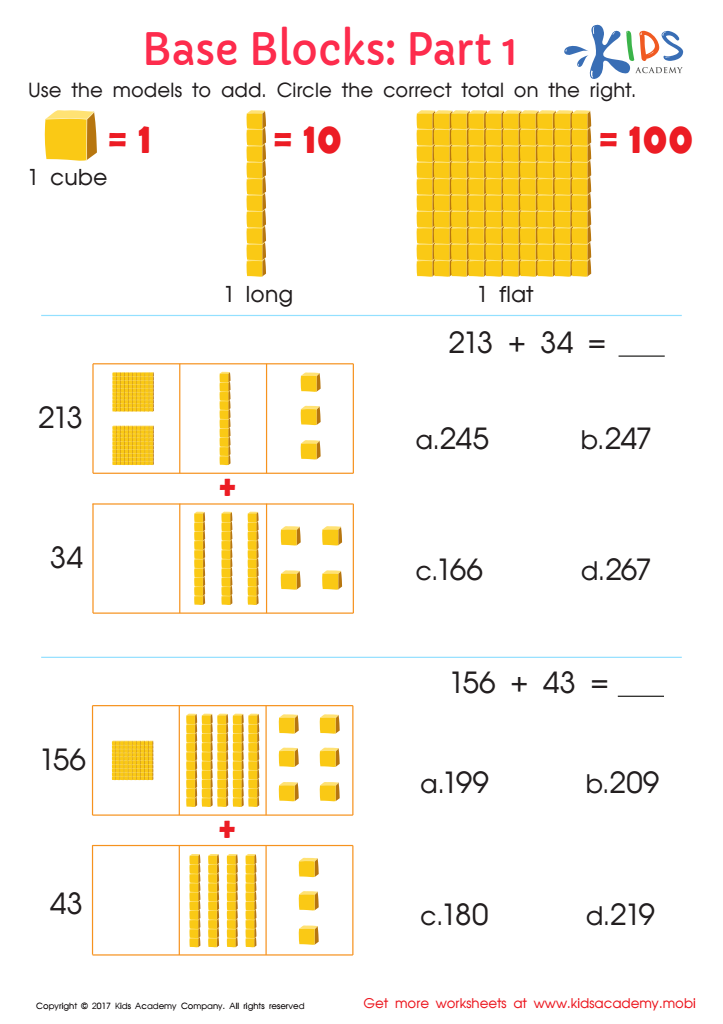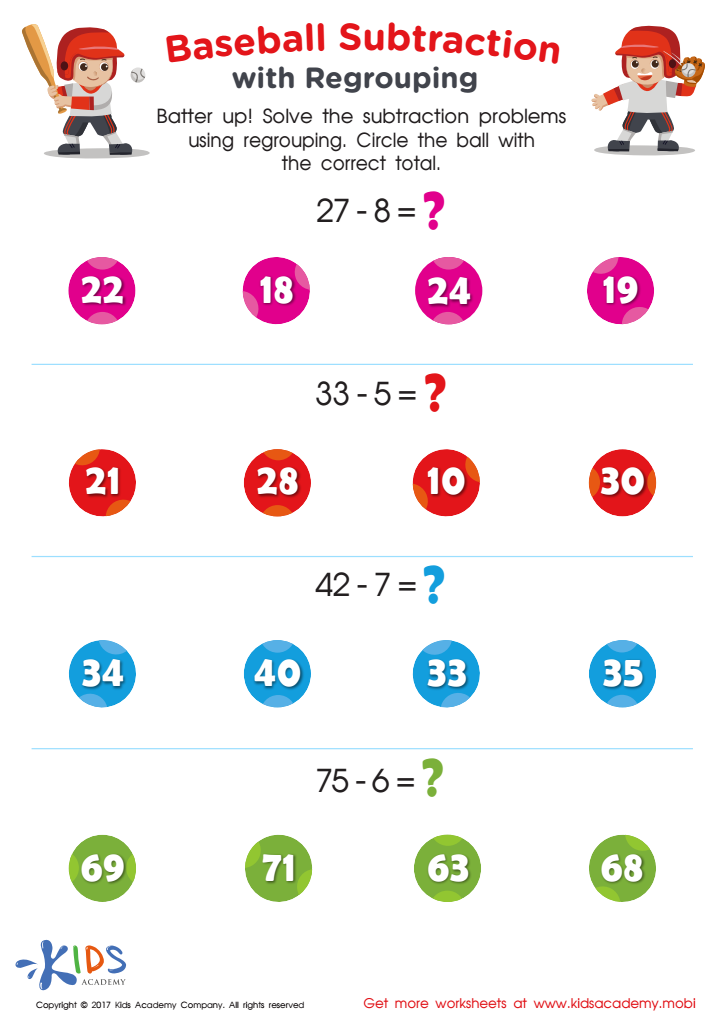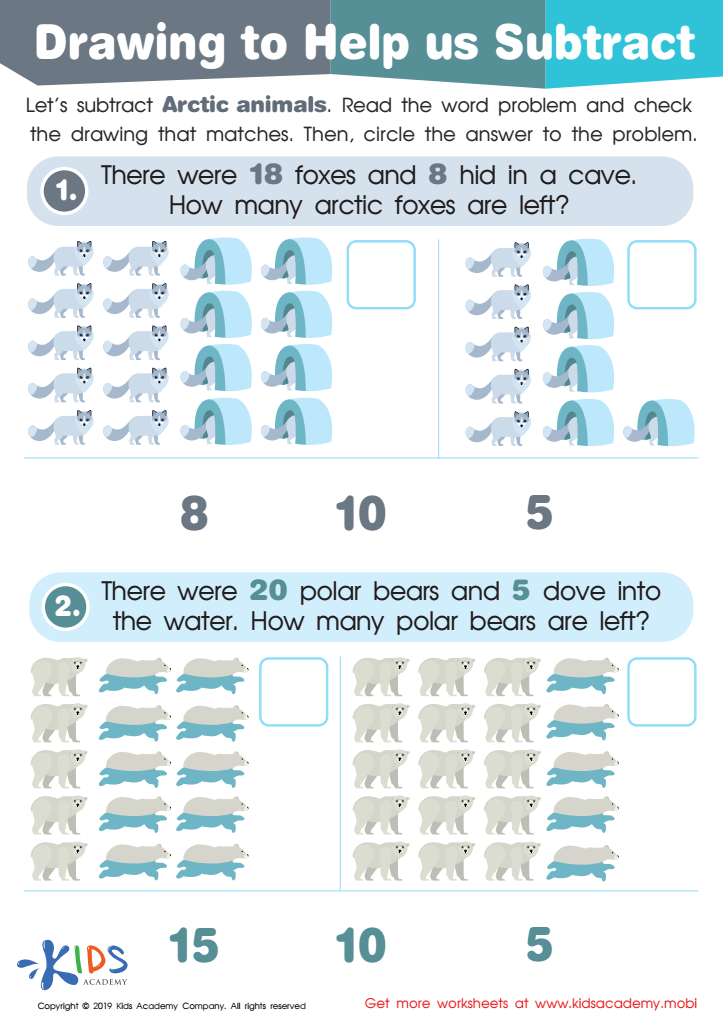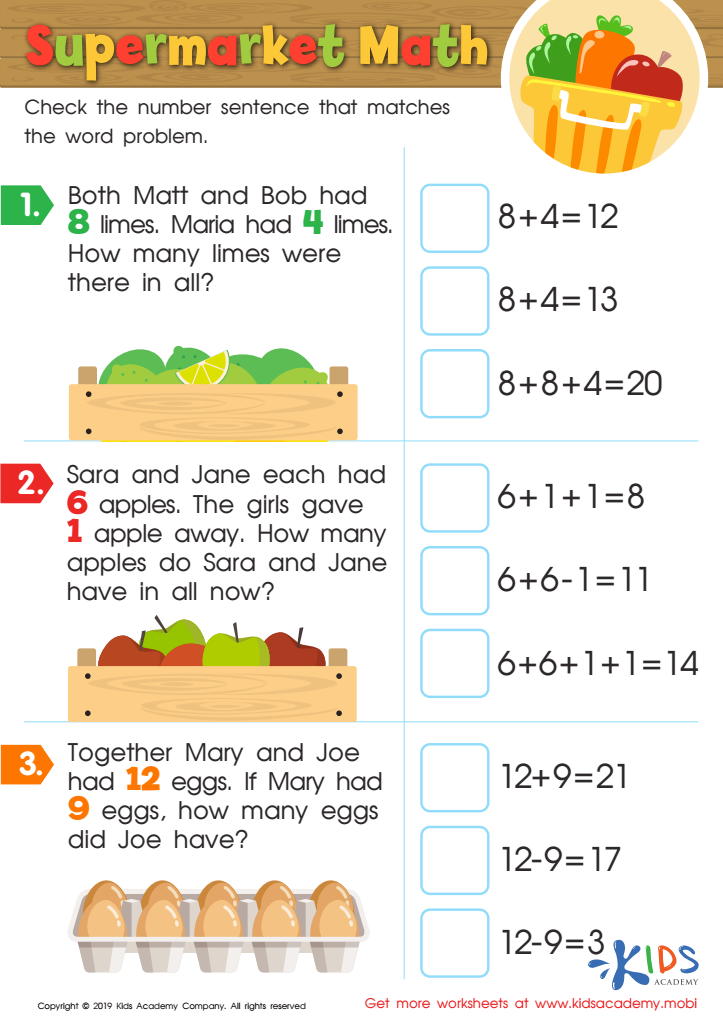Subtraction skills Normal Addition & Subtraction Worksheets for Ages 8-9
4 filtered results
-
From - To
Enhance your child's math proficiency with our engaging Subtraction Skills Worksheets designed for ages 8-9. These printable resources focus on normal addition and subtraction concepts, combining fun activities with essential learning. Each worksheet is tailored to reinforce subtraction skills through clear instructions and interactive exercises, making math practice enjoyable and effective. Join children on a journey to master subtraction, building confidence and solidifying their understanding of numerical relationships. Whether used in-class or at home, our worksheets provide the perfect tool for developing vital math skills in young learners. Explore our collection today and watch your child's math abilities flourish!


Base Ten Blocks Worksheet: Part 1


Subtraction With Regrouping for 2nd Grade Worksheet


Drawing to Help Us Subtract Worksheet


Supermarket Math Worksheet
Subtraction skills play a crucial role in the mathematical development of children aged 8-9. During this stage, students deepen their understanding of numbers and operations, building a foundation for more advanced mathematical concepts. Mastery of subtraction not only strengthens their arithmetic abilities but also enhances logical thinking and problem-solving skills.
For parents and teachers, promoting strong subtraction skills ensures that children can tackle everyday challenges that involve math, such as budgeting, time management, and understanding measurements. Solid subtraction abilities foster greater confidence in math, reducing anxiety around the subject and encouraging children to engage more actively in their learning.
Additionally, effective subtraction skills can support children's learning in other areas, such as fractions, algebra, and word problems, where they may need to interpret and manipulate information. Engaging in fun, interactive learning through games and hands-on activities can make subtraction enjoyable, ultimately reinforcing these critical skills.
Overall, by prioritizing subtraction skills, parents and teachers invest in children’s long-term academic success and instill a positive attitude toward mathematics, setting them on a path toward lifelong learning and problem-solving capabilities.
 Assign to My Students
Assign to My Students




















